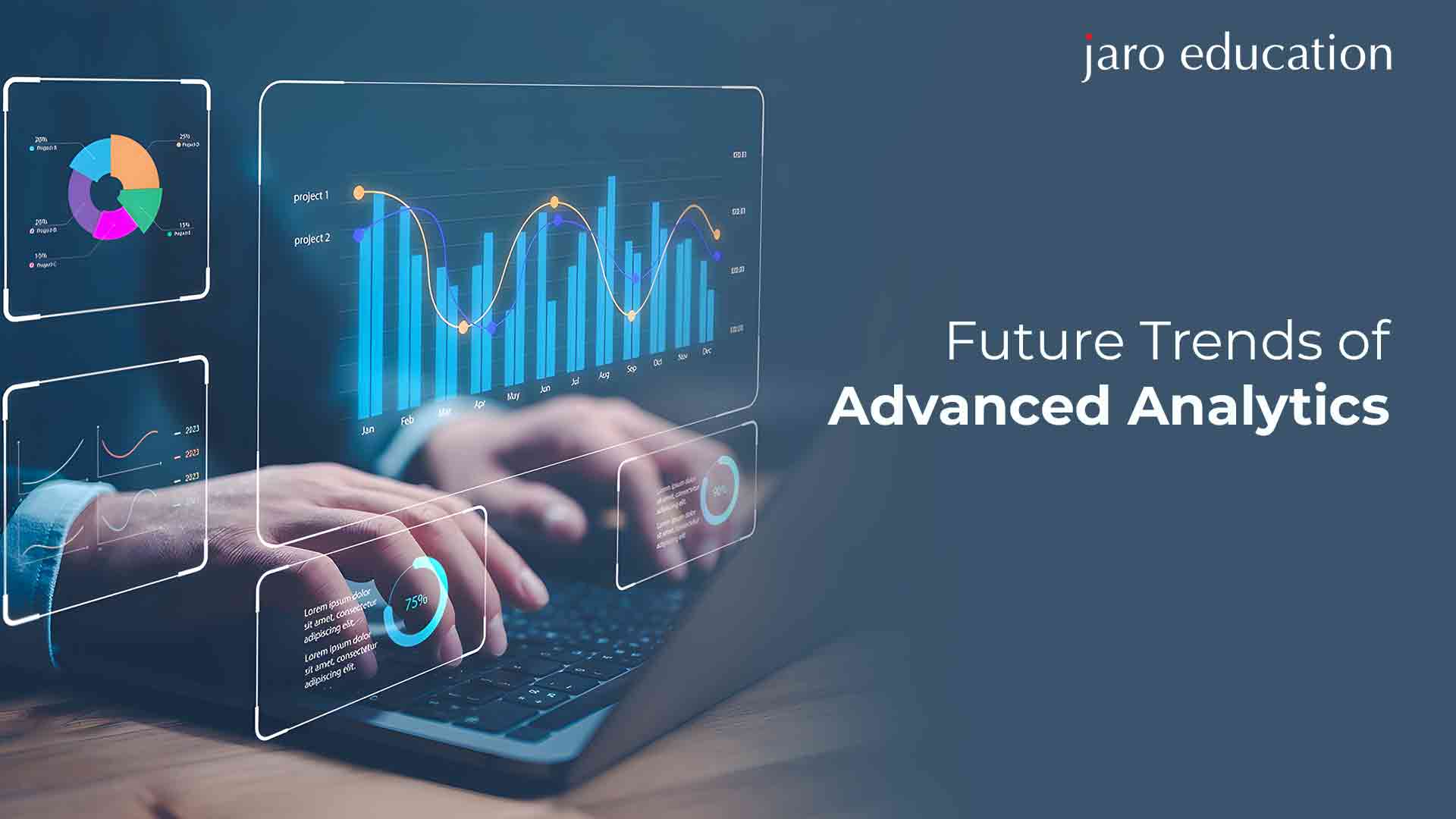As technology continues to advance, so does our ability to analyze and interpret data. Advanced analytics has transformed the way businesses operate, enabling them to make informed decisions based on insights derived from vast amounts of data. From predictive analytics to big data analytics and machine learning, there are numerous types of advanced analytics that companies can use to gain a competitive advantage. In this article, we will explore current applications of advanced analytics and discuss future trends in this field that could change the game for businesses.
Types of Advanced Analytics
Advanced analytics encompasses a range of techniques and methodologies that help organizations make data-driven decisions. Within this field, there are several types of advanced analytics that can be used to extract insights from data.
-
Predictive Analytics:
It is one such technique, which involves using statistical algorithms to analyze historical data and identify patterns or trends. This information can then be used to predict future outcomes or behaviors.
-
Prescriptive Analytics:
This type of analytics takes things one step further by not only predicting what will happen but also prescribing specific actions that should be taken in response. It uses machine learning algorithms to analyze vast amounts of data and generate recommendations based on the desired outcome.
-
Big Data Analytics:
It refers to the process of analyzing large volumes of unstructured or semi-structured data from various sources such as social media, websites, sensors, etc., with the aim of uncovering hidden patterns and gaining deeper insights into customer behavior.
-
Machine Learning:
Machine Learning is another type of advanced analytics that involves using artificial intelligence (AI) algorithms to automatically learn and improve from experience without being explicitly programmed. Machine Learning models can identify complex relationships between different variables within datasets, allowing for more accurate predictions and decision-making processes.
Each type has its own unique benefits depending on the use case at hand. Knowing which technique is best suited for a given task comes down to understanding each method’s strengths before applying them accordingly.
Current Applications of Advanced Analytics
-
Advanced analytics:
It has already made a significant impact on various industries, and its applications are quite diverse.
-
Marketing:
One of the most common applications of advanced analytics is in marketing. By analyzing customer data, companies can determine their preferences, behavior patterns, and purchase history to create targeted marketing campaigns that increase conversions.
-
Healthcare:
Another area where advanced analytics is transforming the industry is healthcare. With access to vast amounts of patient data, doctors and physicians can use predictive models to identify patients at risk for certain diseases or conditions. They can also analyze medical imaging scans to detect early signs of cancer or other illnesses.
-
Finance:
In finance, advanced analytics tools help banks and financial institutions manage risks by predicting market trends and identifying potential fraud cases before they occur. This technology helps them make better investment decisions while protecting their customers’ assets.
-
Supply Chain Management:
This is another area where advanced analytics plays a crucial role by optimizing inventory levels, reducing transportation costs, and improving delivery times based on real-time demand forecasts.
Current applications of advanced analytics span across many industries from retail to healthcare to finance as it continues to revolutionize how businesses operate today.
Future Trends of Advanced Analytics
Here are a few advanced analytics trends that are going to be normal in the coming years:
-
Real-time Data Analysis:
One trend that we can expect to see in the coming years is a greater focus on real-time data analysis. This will enable businesses to make faster decisions and respond more quickly to changing market conditions.
-
Machine Learning:
Another trend that we’re likely to see is the increased use of machine learning algorithms for predictive analytics. Machine learning has already made significant strides in areas such as natural language processing, image recognition, and fraud detection, but it’s only just scratching the surface of what’s possible.
-
User Friendliness:
We can also expect advanced analytics tools to become more user-friendly and accessible to a wider range of users. This will help democratize data-driven decision-making across organizations.
-
Ethical Considerations:
There will be a growing emphasis on ethical considerations in advanced analytics. As these technologies become more powerful and ubiquitous, it’s important that they are used responsibly and with respect for privacy concerns.
The future looks bright for those working in advanced analytics fields such as predictive modeling, big data management, or business intelligence. Professionals who want to stay ahead of the curve should consider enrolling in a certificate programme like IIM Kozhikode’s Professional Certificate Programme in Advanced Analytics & Business Intelligence.
Some of the highlights of this programme include real-life case studies, peer learning & networking opportunities with industry experts, rigorous pedagogy which is a blend of theoretical and practical approaches, IIM Kozhikode alumni status, as well as hands-on live interactive classes are certain benefits of this programme.
Conclusion
The field of advanced analytics is continuously evolving with new trends and technologies emerging every day. The ability to harness data and extract insights that drive business decisions has become an essential aspect of any organization’s success. Enrolling in the Professional Certificate Programme in Advanced Analytics & Business Intelligence – IIM Kozhikode can help advance your career in analytics by providing you with comprehensive knowledge and practical training on advanced analytics tools and techniques. This programme will equip you with the skills needed to analyze complex data sets and make informed decisions. Thus, if you are looking to take your career in analytics to the next level or seeking opportunities to enhance your analytical skillset – look no further than this programme.






